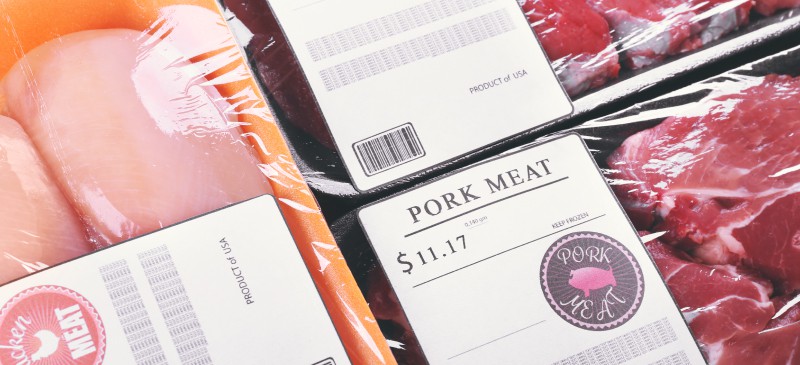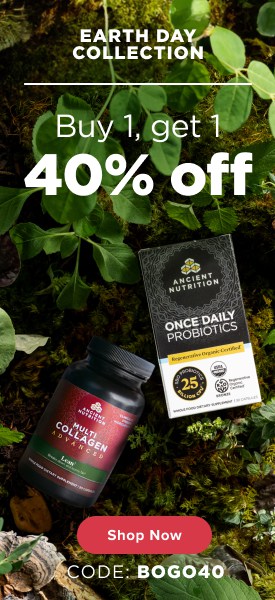This Dr. Axe content is medically reviewed or fact checked to ensure factually accurate information.
With strict editorial sourcing guidelines, we only link to academic research institutions, reputable media sites and, when research is available, medically peer-reviewed studies. Note that the numbers in parentheses (1, 2, etc.) are clickable links to these studies.
The information in our articles is NOT intended to replace a one-on-one relationship with a qualified health care professional and is not intended as medical advice.
This article is based on scientific evidence, written by experts and fact checked by our trained editorial staff. Note that the numbers in parentheses (1, 2, etc.) are clickable links to medically peer-reviewed studies.
Our team includes licensed nutritionists and dietitians, certified health education specialists, as well as certified strength and conditioning specialists, personal trainers and corrective exercise specialists. Our team aims to be not only thorough with its research, but also objective and unbiased.
The information in our articles is NOT intended to replace a one-on-one relationship with a qualified health care professional and is not intended as medical advice.
10 Food Labels You Can’t Trust
June 29, 2018

Food labels. Who’s got time for decoding them? With only so many hours in a day, most of us would rather not waste precious minutes trying to decipher meat, dairy and egg carton claims. Well, I’m thrilled to share an incredible new tool that IDs the most trustworthy claims — and calls out the most misleading ones.
And the stakes have never been higher. Stopping superbugs is becoming a national priority, and rightfully so. A recent report sounded the alarms, noting that hard-to-kill bacteria will be linked to 10 million deaths a year by 2050 if we go about business as usual. (1)
The rise of drug-resistant superbugs can be partially traced back to feeding low-dose antibiotics to food-producing animals. And there’s a good chance those dangerous, potentially life-threatening germs are hanging out in your supermarket meat. An Environmental Working Group analysis of the latest federal testing shows nearly 80 percent of supermarket meat contains antibiotic-resistant bacteria.
These numbers show producing cheap meat comes at a real cost to consumers. “Bacteria transfer their antibiotic resistance genes to other bacteria they come in contact with in the environment and in the gastrointestinal tract of people and animals, making it very difficult to effectively treat infections,” says Gail Hansen, DVM, MPH, public health consultant and veterinarian.
The latest breakdown found drug-resistant bacteria on:
- 79 percent of ground turkey
- 71 percent of pork chops
- 62 percent of ground beef
- 36 percent of chicken breasts, wings and thighs (2,3)
With the threat of superbugs lurking and many hard-to-understand food labels, Environmental Working Group released a Label Decoder so consumers can help sort of meaningful meat labels from deceitful ones.
Related: Carmine: A Food Colorant Made From Crushed Bugs?!
Best and Worst Food Labels
“No Hormones Added,” “Natural,”Cage Free:” Do these food labels carry any weight? Thankfully, we have a new tool that helps us more deeply explore how much we can trust specific food labels commonly found on supermarket meat, dairy and egg products.
EWG points out that the most reliable certifications follow these practices:
- No antibiotics given to healthy animals
- No synthetic growth hormones
- No cages allowed and outdoor access required
- More space to allow for natural behaviors
- Strong third-party verification
- Frequent on-farm inspections (every 12 to 36 months)
There’s also a set of meat, dairy and egg food labels that fall into a gray area. I tend to avoid putting a lot of trust into these less reliable claims because there’s little verification required to back up these claims, or the third-party accountability may be a bit lacking. I will note that sometimes small, local producers use some of these claims. I always find it useful to form a relationship to local farmers and tour the farm to learn more in these cases. But when it comes to supermarket shopping, I don’t put a lot of stock in these food labels. These “gray zone” claims include:
- American Humane Certified
- No Antibiotics
- No Beta Agonists
- Farmed Responsibly ASC Certified
- Grass-fed
- Heritage Breeds
- Pasture Raised
- Not treated with rBGH/rBST
- Organic Seafood
- Sustainable Seafood
- Vegetarian Fed
- USDA Process Verified
- Wild-Caught/Wild Fish

Then there are the 10 food labels you should never trust. Why? EWG suggests we should “be wary” of these claims because they are deceptive or misleading. While “cage-free” may conjure up images of chickens running freely on pasture, the truth is many are crammed into giant warehouses, stressed and unable to spread out their wings and perform natural chicken behaviors like dust bathing and foraging.
- Animal Welfare Review
- Cage Free
- Free-range
- No Hormones Added
- Humanely Raised
- Farmed Fish
- Lean/Extra Lean
- Natural
- No Nitrates or Nitrites Added
- Omega-3 Fortified Eggs and Milk
Related: Food Waste Study: The Staggering Amount of Uneaten Food in the U.S.
Final Thoughts on Food Labels
- An analysis of the latest government data looking at superbugs in supermarket meat found nearly 80 percent of samples tested contain antibiotic-resistant germs in the meat.
- Antibiotic resistance is created by antibiotic abuse used in industrial farming and in healthcare.
- Environmental Working Group, a nonprofit focusing on improving human and environmental health, released a label decoder to help consumers quickly identify meaningful labels (and deceitful ones to avoid.)
- The best food labels have strong third-party certification with regular inspections and accountability.
- Some of the most meaningless food labels include: “Natural,” “Humanely Raised,” “Animal Welfare Review,” “No Hormones Added” and more.
- When dealing with small, local farmers who may not have certifications, ask specific questions like, “How much time do your chickens spend outside?” “Is your feed certified organic?” “Do you animals ever receive any antibiotics?”













